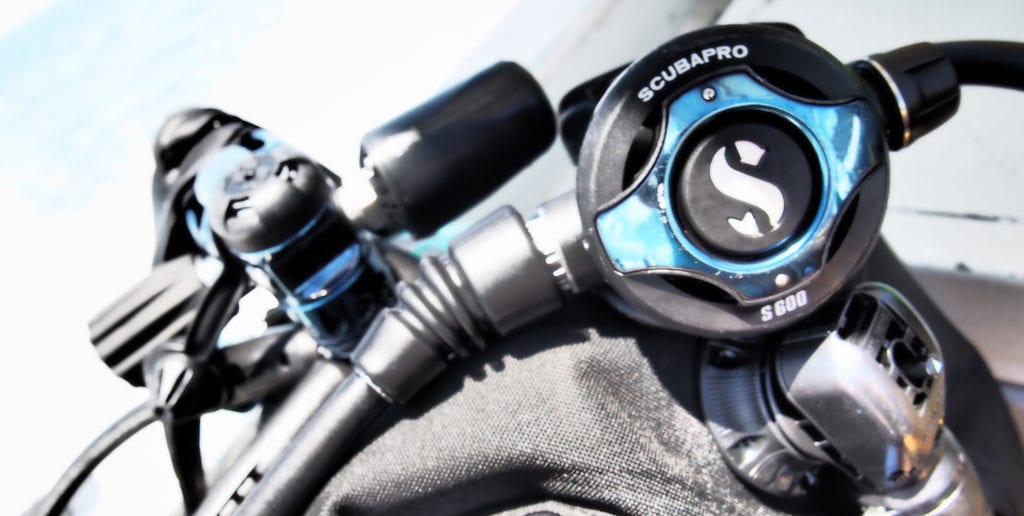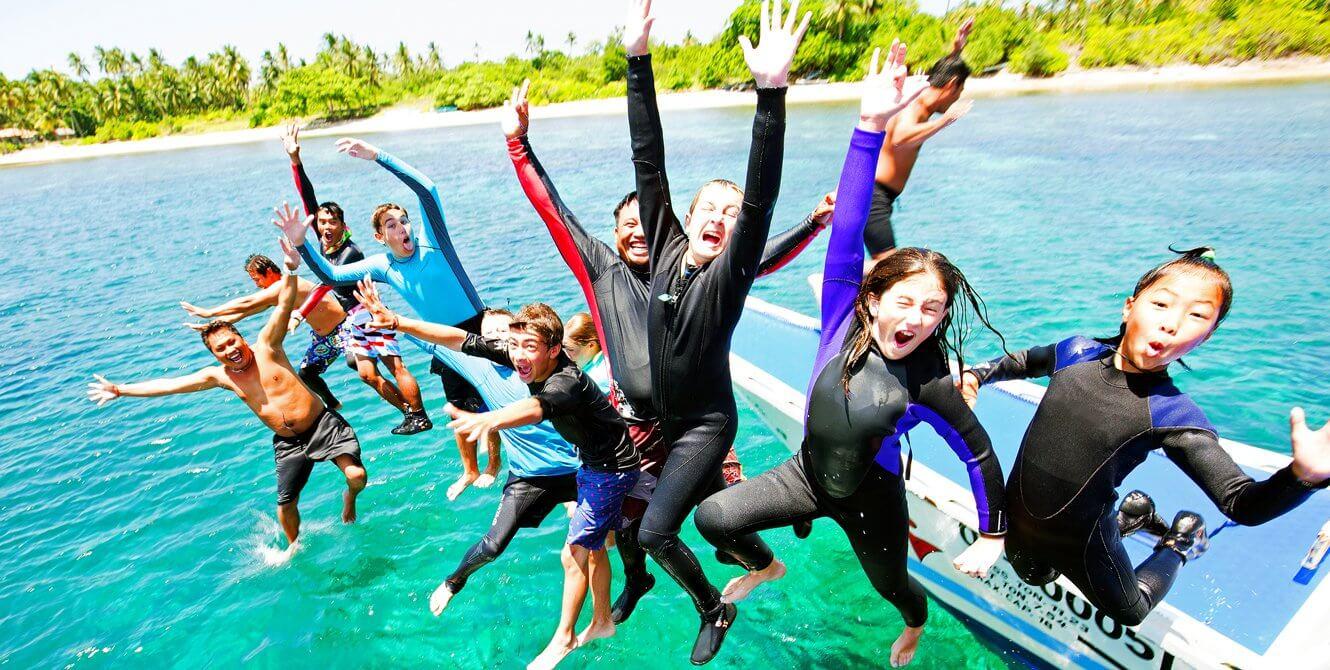Tips on taking caring for your scuba gear
Healthy dive gear means healthy and safe diving
Taking good care of your scuba gear is as important as taking care of yourself, your car, your home, and anything else that keeps you alive and well.
 Your scuba gear is responsible for life support while you dive. Caring for your gear is one of the most important practices of Scuba diving. Your BC is managing your buoyancy during your dive, your regulator is taking care of your airflow and your gauges are in charge of making sure you can safely monitor your depth, time, and direction. Your fins, mask, and snorkel are most important for vision, movement, and surface breathing with ease. Of course, there are lots of accessories like your dive computer, your wetsuit, your hood, boots, gloves, cameras, tanks, weights, and belts that also require attention and care.
Your scuba gear is responsible for life support while you dive. Caring for your gear is one of the most important practices of Scuba diving. Your BC is managing your buoyancy during your dive, your regulator is taking care of your airflow and your gauges are in charge of making sure you can safely monitor your depth, time, and direction. Your fins, mask, and snorkel are most important for vision, movement, and surface breathing with ease. Of course, there are lots of accessories like your dive computer, your wetsuit, your hood, boots, gloves, cameras, tanks, weights, and belts that also require attention and care.
Keep your scuba gear in tip-top shape! Most scuba gear comes with instructional manuals describing manufacturer recommendations for care and maintenance.
Here are some general suggestions to help keep your scuba gear in tip-top shape:
- One good thing about scuba gear is that because it’s waterproof, you can wash it. In fact, all scuba gear should be rinsed in clean, freshwater after every dive. Then, it should be dried before storing it in a cool, dry place out of direct sunlight.
- Remember to dry and firmly replace the regulator’s dust cap before rinsing the regulator to avoid any water entering the first stage. Ideally, rinse the regulator while it is still attached to the scuba tank and pressurized. That way no water will enter at all.
- Have your scuba gear and equipment serviced regularly use clips and other attachments to keep all hoses and gauges close to your body while scuba diving. This prevents them from dragging across sharp rocks or coral. This also keeps them from getting snagged or dirty. By regularly, I recommend once a year. This is very important so that you can feel confident that your gear is ready to serve you when you jump in.
- Don’t wait until you are on location in the much-awaited dive trip to the Galapagos, Palau, or the Cayman Islands to name a few before you figure out that your regulator is not working properly or your BC is leaking or won’t inflate. Although most PADI dive resorts around the world that Kids Sea Camp and Family Dive Adventures selects to send you to, all have state-of-the-art equipment and gear rental, it can be costly to rent gear by the day for the whole family. Having your own gear is less stressful, more comfortable diving with and if it’s kept in good condition, will last for years of enjoyment.
- Handle scuba tanks with care. They are heavy and you shouldn’t leave them standing up unattended – they can fall over and damage the valve or nearby toes. Remember when you have used a tank, to keep the cap off, that lets the dive shop know that tank has to be attended to. Always make sure your tank is strapped in securely on the boat you are diving in when your gear is hooked up. A fall can break or crack a valve and permanently damage gear. Change your own tank over between dives, and make sure to check your pressure gauge to assure you have a full tank when beginning a dive. Make sure to read the numbers on your tank, if you diving Nitrox, you should have a Nitrox label on the tank with the information on the label. analyze your own mix and make sure to record the information. If you diving air, make sure your dive computers are set properly pounds, bar, Nitrox, or air. Never dive air with your computer set for Nitrox. Make sure to always examine your tank before a dive.
- You should rinse both the inside and outside of your BCD. Make sure to drain the water, then always store your BCD partially inflated. Make sure your BC inflates and deflates easily. It should fit comfortably, not too big floating up or too tight, and cut into your skin. If you have outgrown your BC, it’s well worth the investment to purchase a new one. ScubaPro makes BC’s with comfortable backplates for people with bad backs and kids that need extra support from the tank. The new BCs have pockets and integrated weight belts and Air 2’s designed to be more streamlined in the water and much lighter weight to travel with. Check out the ScubaPro Knight Hawk, LightHawk, and Go for the guys, the LadyHawk and Bella for the girls and for kids, the SubGear rebel is my number one choice. (See our online Scuba Store)
- Regularly inspect your mask strap, fin straps, snorkel, and regulator mouthpieces and hoses for any sign of wear and tear. Sunlight, stretching, and teeth easily damage these items so you might need to replace them sooner than expected. These are very important pieces of equipment. You would want to be comfortable in hiking shoes if you were hiking or tennis shoes if you were playing tennis right? Well, diving is just as important. The wrong fins could give you leg cramps and blisters. Make sure to go down to your local dive shop and try on a pair of fins. For diving, you want a longer fin, not a short one, those are meant for snorkeling, not diving. I personally like the full foot fins, as they fit comfortably like a slipper on my feet, but most men prefer the clasp fins with booties. Your choice – fins should be kept in a place where they can hang or be completely flat. If you throw them into a bag or stand them in a box or closet, they will bend and curve and lose their shape.
- Handle your scuba gear with care. After rinsing your wetsuit, wash it with a wetsuit soap or scrub, and hang it up to dry inside out on a wire hanger. CARING FOR YOUR GEAR IS IMPORTANT!
- Regulators and computers: Treat these as well as you do your laptop! I do not check these in when traveling but carry them with me. Always rinse properly and put them in their own separate case or bag to prevent damage. Make sure your battery in your computer is full and working and make sure your reg-system has been serviced and is working properly. For those looking for something new this year, I highly recommend the MK25 with the A700 ScubaPro regulator system and the Galileo Luna wrist computer, this is a hoseless air integrated computer, for avid divers. I outfit my kids in the Luna’s because I like the programmed safety stop information, the dive log ability, and the larger screens. The all-new Chromis wrist sport watches computer for kids or the Meridian dive computer/watch for adults that do not want air integration. (See our online Scuba Store)

